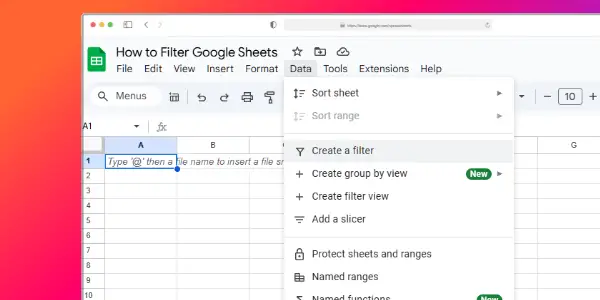When it comes to the business world, there are a lot of different types of management positions. Two common roles that you may hear about are program managers and project managers. But what exactly is the difference between these two positions? And can someone be both a program manager and a project manager at the same time?
Although it is possible for a project manager to also be a program manager, it is not recommended. Program managers are responsible for managing multiple projects that are all related to each other in some way whereas a project manager is only responsible for managing one specific project at a time.
Duty doubling is no strange occurrence, especially in smaller firms when duties share significant similarities. Program and project management are pivotal to the success of any organization. However, could organizations be overspending by hiring both managers for separate duties? This article provides insight into the possibility of a program manager being a project manager.
Why Should a Program Manager Not Be a Project Manager?
With so many skills overlapping it’s no wonder a lot of project managers go on to be program managers, but why do they never hold both positions at the same time?
In some companies they will do due to limited resources, they may not have the budget to appoint both positions. On the plus side, doing both roles provides a deep understanding of both program goals and objectives as well as project requirements. This can be helpful in ensuring that projects stay on track and within scope.
Additionally, having knowledge of both areas can make you more effective at communicating with stakeholders from different departments or disciplines.
However, there can also be some drawbacks to wearing two hats. For example, it can be difficult to keep up with the administrative duties associated with each role or end up feeling spread too thin.

Both jobs have distinct designations within an organization, and while there are similarities, each requires a specific skill set, experience and training.
As a result, the best option for most organizations is to ensure both responsibilities cannot be undertaken by the same person if the organization must maximize productivity. The program and project manager work closely on similar initiatives, but it is not to be mistaken for sameness.
The program manager is usually in charge of the project manager, providing guidance from a higher vantage point that eludes the project manager due to focussing on several singular tasks.
Again, program managers create the strategic plans for driving product development through the program, whereas the project manager attends to the execution of the developed plans.
Should Organizations Hire One Person To Double As Program and Project Manager?
Resource management and allocation are critical aspects of organizational and strategic management, and play an important role in the success of a business.
As a small company starts to grow the allocation of funds for a dedicated project manager could seem like overspending to some, with those unfamiliar with each role assuming the similar skill sets means they don’t need to hire both a program and a project manager.
Where you have an individual project, then one person really is all you need. They can run the project team, deal with stakeholders and run the single project as a mini program. Where things get complicated is if there are interconnected projects spanning multiple departments over a period of time.
At that point, hiring a separate program and a project manager is not wasteful. When you consider the work involved in both roles, it comes as no surprise that when you have just a project manager you can suffer from more mistakes being made as they are trying to focus on too many tasks at once.
Here is why one person shouldn’t combine both responsibilities.
Program vs. Project: Why Both Responsibilities Should Not Be Fused
The fundamental difference between the jobs of a program and project manager is their object of focus. The program manager works with a unifying framework for multiple interrelated tasks called programs. In contrast, the project manager works with separate charges called projects.
Understanding the difference between a program and a project serves as baseline information for why a program manager cannot be a project manager.
- Overview of a Program: A program is an ongoing or progressive and unifying umbrella of projects toward attaining organizational goals.
- Overview of a Project: A project refers to separate tasks focusing on one specific goal to be completed within a set timeframe.
Here is a table showing how a program differs from a project and why you cannot fuse them in one job.
| Criteria for Classification | Program | Project |
| Timeframe | Continuous / long-term. | One-off fixed period. |
| Personnel in charge | Program manager reporting to senior management. | Project manager reporting to program manager. |
| Focus area | Business wide. | Depends on project. |
| Deliverables | A comprehensive plan for executing multiple projects to achieve numerous goals. | A range of tasks to achieve a specific goal. |
| Staffing levels | Single program manager working with stakeholders and senior management. | Single project manager overseeing project team and working with stakeholders. |
| Stakeholder engagement | It requires consistent stakeholder engagement. | It may not require consistent stakeholder engagement. |
| Tasks nature | Strategic tasks. | Technical tasks. |
| End produce | Primarily concerned with the organizational outcome. | Primarily concerned with the organizational output. |
Program vs. Project Manager: Career Path Fusion or Fission?
Now that you know the difference between a program and a project, you will better appreciate the need to separate the positions.
The Program Manager’s Career Path
A program manager oversees projects as part of a unified whole called a program. Since projects often overlap and depend on one another, forming several chains of project casualties, a program manager is also responsible for distinguishing and separating similar tasks.
Additionally, the program manager’s job is dynamic and involves several promotional steps along the program management career path. To this effect, there are four types or levels of program managers.
Here is a table presenting them in descending order of authority and responsibility.
| Levels of Program Managers | Authority and Responsibility |
| Head of Programs | The highest program management level responsible for organizing business strategies and program plans. Oversees the evaluation of project managers. |
| Program Director | Understudies the head of programs and carries out similar tasks. |
| Program Manager | The most active and pivotal program management level, involves running the programs to meet organizational goals as well as managing corporate budget and resources. |
| Program Management Officer | The minor level of program management, functions as a room for the program manager in waiting or training. |
Note that mange businesses will not need all of these levels. A program can be effectively run with just a single program manager working with several project managers. The additional levels can be added in as the business, and therefore the program, grows to a size that is unmanageable for a single individual.
The Project Manager Career Path
An organization can have as many project managers as there are projects to undertake.
Thus the duties are more specialized, causing them to exhibit industry-specific knowledge, unlike program managers.
However, project managers also experience significant chances for career growth with the various levels of management.
Here is a table presenting them in descending order of authority and responsibility.
| Levels of Project Managers | Authority and Responsibility |
| Director of Project Management | Highest-ranking project manager in an organization who coordinate the organization’s big picture. They engage in large scale planning and report to the head of programs. |
| Senior Project Manager | An advanced management position with sub-employees. They perform similar duties to project managers with extra salary and other compensation. |
| Project Manager | The middle level for project management in an organization, they perform key management duties and help coordinate junior employees. |
| Assistant Project Manager | It is the position of the project manager in waiting or training, they understudy the project manager directly and supervise junior project management employees. |
| Project Coordinator | They perform junior roles and are directly under the supervision of the project, and assistant project managers. They track all organizational financial involvement in projects and resource allocation, organize analytical tools like graphs and sheets for in-house presentations and provide budget analysis. |
| Project Scheduler | They occupy a specialized junior position, maintaining the schedule of a project to ensure timely completion of projects by the other workers in the team. |
| Team Member | The lowest level in the project management hierarchy, usually the entry level position used to gain experiance of project management and learn more about the business and industry the business operates in. |
As with program management, many of the above levels aren’t required until the number of projects demands a larger project staff.
It’s not uncommon to have a single program manager with 4 or 5 project managers reporting to them and no other levels used. As each project can make use of different staff and departments around the business, they don’t necessarily need to have many levels of project staff.
Compensation for Program and Project Managers
As program managers are typically positioned above project managers, due to their broad and generalized management scope, it won’t surprise you to learn they are generally paid more.
Below is a table showing data collected from several job sites, such as Glassdoor and Indeed, for the average salaries of project and program managers in the United States as of August 2021.
| Job Sites | Program Manager’s Salary Data | Project Manager’s Salary Data |
| Glassdoor | $94,902 | $87,472 |
| Payscale | $84,430 | $75,036 |
| Salary.com | $138,128 | $67,372 |
| Indeed | $74,481 | $74,831 |
According to the project management institute, job opportunities for project management are expected to grow between 2017 and 2027 by 30 percent.
What Is the Organizational Scope of a Program vs. Project Manager?
The organizational scope of the program and project manager involves all exported duties within the establishment. Although program and project managers perform managerial operations in any organization, their scope of accomplishment is distinct and further explains why the two roles shouldn’t be combined.
Their organizational capacities include but are not limited to the following areas:
| Organizational Scope of a Program Manager | Organizational Scope of a Project Manager |
| Curating programs for strategic organizational management | Coordinating projects with team members |
| Direct execution of programs | Scheduling a timeline for project completion |
| Project evaluation | Project reporting and presentation |
| Providing general information within the organization | Task delegation and assigning of team members |
| Coordinating project marketing | Project quality control and assurance |
| Quality control and assurance of project management | Project tracking and performance appraisal |
| Budgeting and organizational resource management and allocation | |
| Stakeholder engagement | |
| Risk assessment and forecasting |
Organizational Disadvantages of Doubling a Program Manager as a Project Manager.
Everyone can be a program and project manager, provided they possess the requisite skills. However, in the interest of the organization, no one should be a program and project manager, as there are grave consequences of such juxtaposition.
Here is a list highlighting some challenges that could accrue to an organization when a program manager also functions as a project manager.
- A general inefficiency and reduced productivity
- Personnel confusion and burnout
- Unmotivated organization members
- Missed deadlines with organizational goals and targets
- Mismanaged corporate human and material resources
- Organizational predisposal to risks and economic vulnerability
- Eventual falling, closure and folding of the organization.
Frequently Asked Questions
What Industries Require Program and Project Managers?
Program and project managers are relevant in nearly all industries, from construction to computer programming, business, engineering, education, advertising, sales and healthcare. However, possessing industry-specific knowledge is an added advantage to whoever wins the program or project manager job.
Should the Project Manager Also Double As the Technical Head of a Group?
The project manager should be concerned with offering guidance to other team members and employees, including the technical head. The project manager appoints the technical head based on their hands-on skills to drive the team towards accomplishing the organization’s project.
Is the Job Description of a Program Manager Stressful?
The program manager wears so many hats in any organization. For instance, program managers are saddled with the responsibility of the general organization, budgeting, quality control and project organization. As a result, it is no secret that the job of a program manager is highly demanding and can therefore be stressful.
Final Thoughts
Program and project managers perform distinct roles in any organization and cover separate managerial scopes.
So whether you are considering a future career or are looking to understand how these two camps might work better together in your business, it’s essential to know the relationship and difference between both positions.
Hopefully, this article helps!





